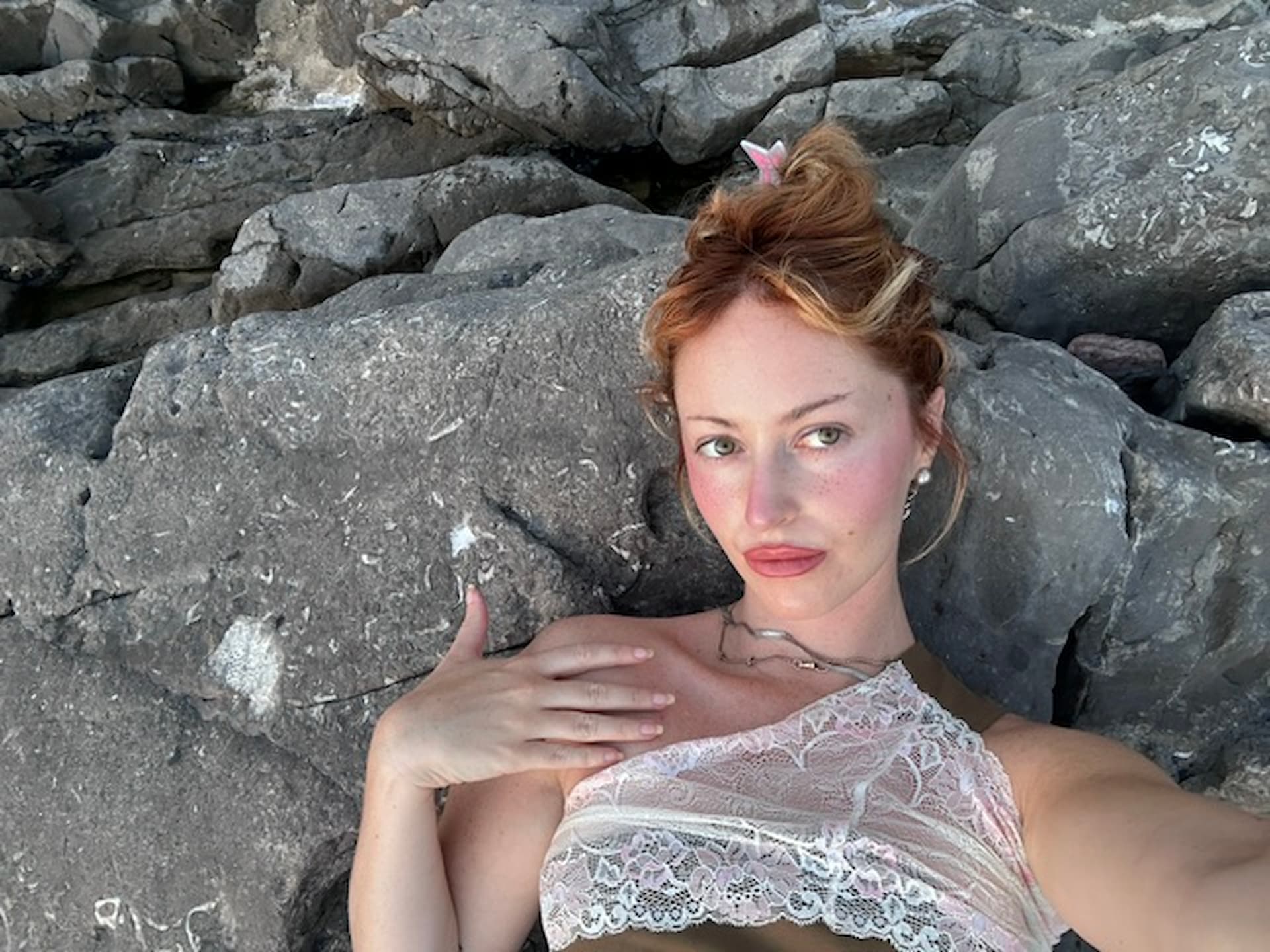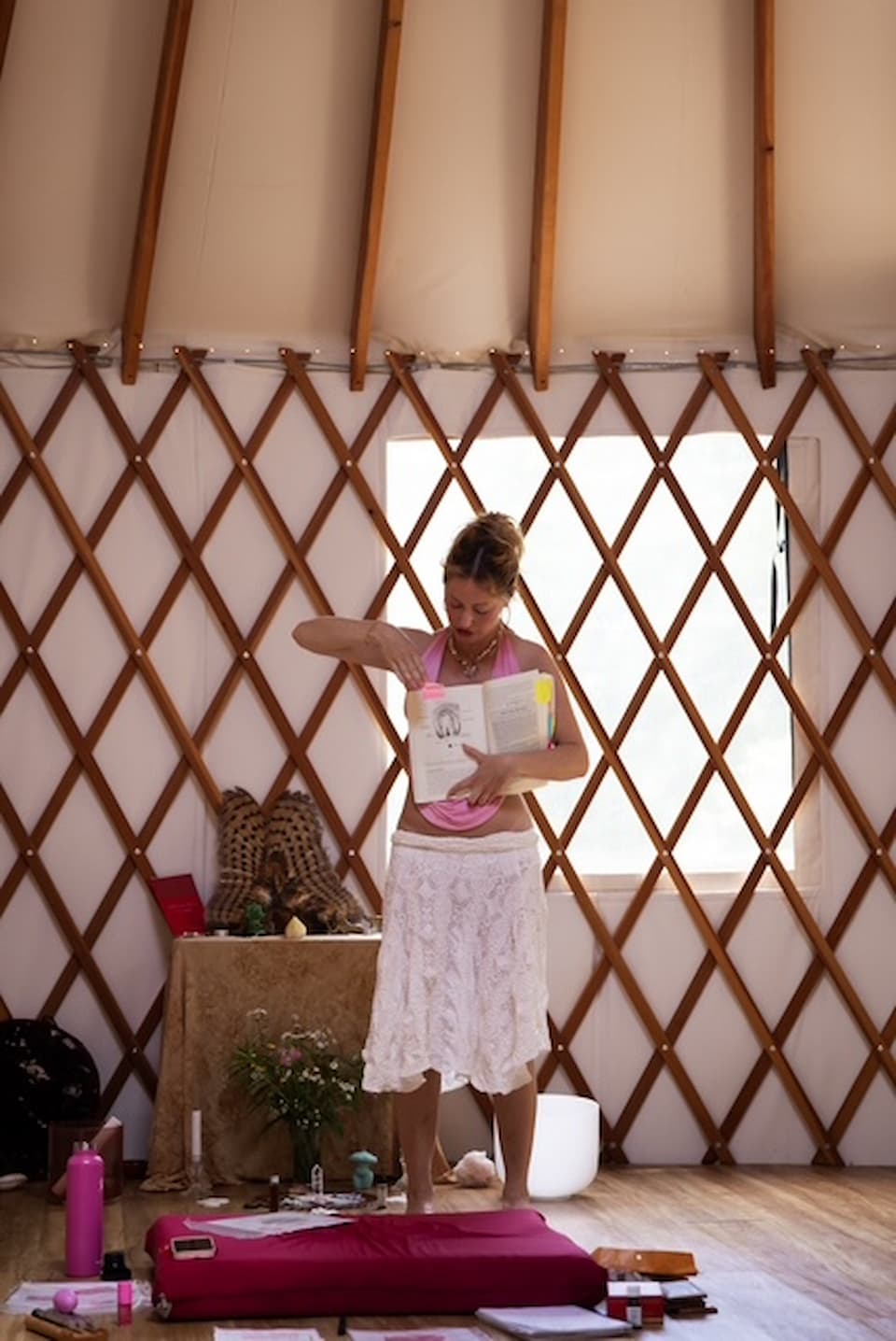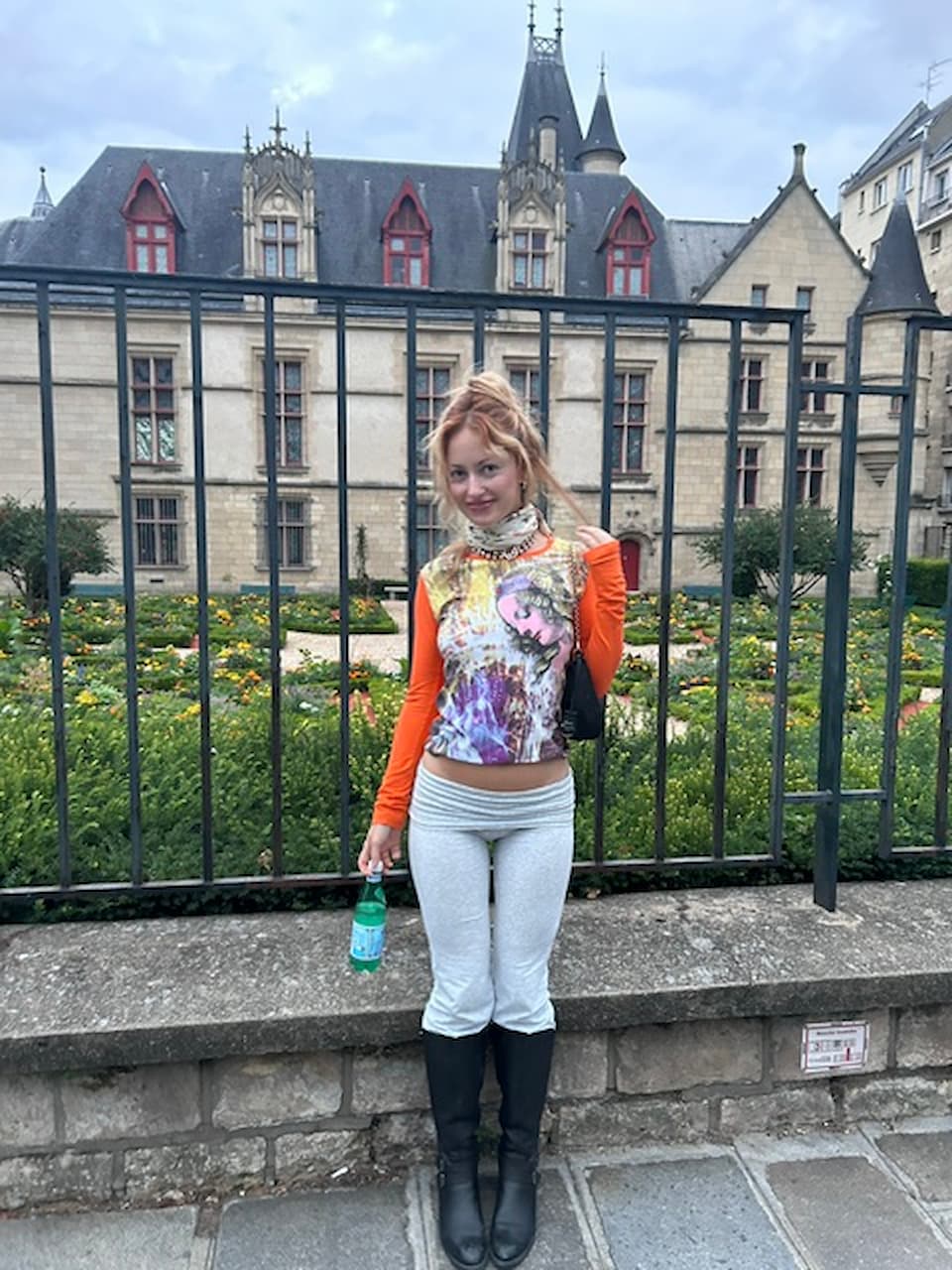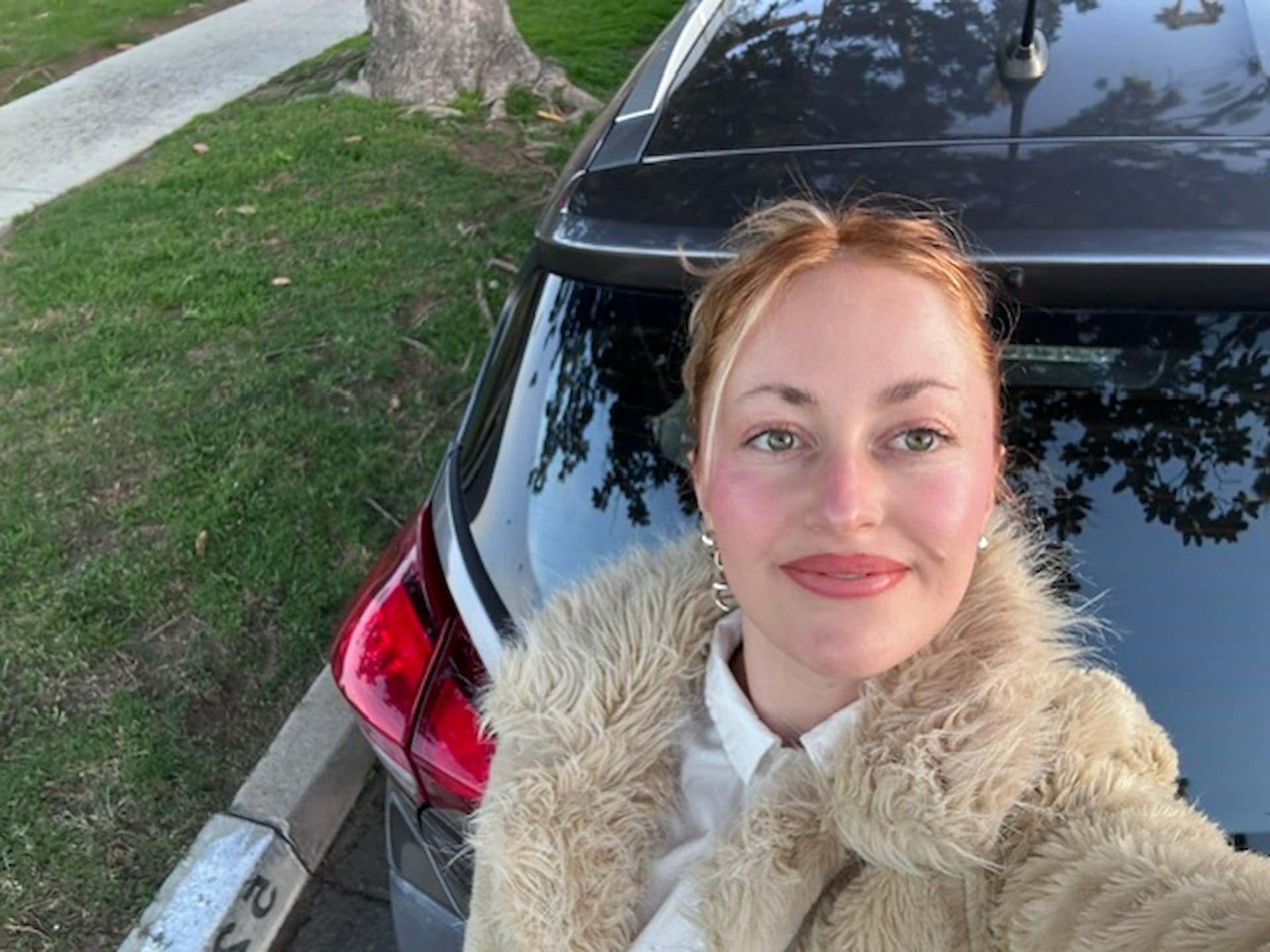Clarke Rose is a sex coach, holistic sex therapist, and founder of Sex & Roses. Clarke Rose doesn’t deal in shame or one-size-fits-all solutions. Instead, they create spaces where people can explore the stories their bodies hold—stories of desire, curiosity, healing, and joy and learn to embrace their sexuality fully and freely.
From guiding over 500 clients across the globe to hosting retreats that celebrate expression, movement, and emotional release, Clarke’s work sits at the intersection of sexual freedom, personal growth, and self-compassion. For Clarke, sex isn’t just a practice; it’s pleasure, theory, and liberation.
We sat down with Clarke to talk about what it really means to explore intimacy on your own terms, why sexual freedom matters, and how embracing vulnerability can transform not just your relationships but your whole sense of self.

Beginnings with Sex & Roses
Starting your blog, Sex & Roses, at 20 was a bold move. Looking back, what role did writing publicly about your sex life play in your journey toward becoming a sex coach?
Clarke: I feel that my career so far is a bit of a trilogy. It started when I was very young, through conversations with friends and giving dating advice. Then in high school I started the feminist club, which I did at a pivotal moment in time; think 2014, Miley and the foam finger, Beyonce and Taylor “coming out” as feminists… That was all, part one. Part two was living in Paris, France, for three years and writing publicly about my sex life on my site, then called Sex and Roses. I was beginning to formulate my personal thoughts and ideas around sex.
I was also releasing a few layers of shame I needed to shed. I was terribly honest about my relationship and my orgasms, and everyone at school read it. Everyone knew it was all about me. There was nothing to hide behind, and shame is when we stay hidden. This was a time when Instagram wasn’t what it is now, but it was a special time for Instagram when you could really engage with the content you wanted to, and I received probably 100s of messages around what my blog meant to people, which was very special! It showed me that people really were looking for answers to their questions and spaces to work on their sexuality. Also, I would do these interview pieces where I would send out questionnaires to 50 to 100 people, and they would be anonymous, asking people about good sex and bad sex and love and relationships. And people would answer so honestly, and in many ways, that was how I was doing research!!! Part three is the part I am in now—the one-on-one work with clients.
Cultural Shifts and Sexuality
You’ve lived and worked across the world, from Paris to Australia to California. How have these cultural shifts shaped your perspective on sexuality, intimacy, and freedom?
Clarke: Those are the three places that I have lived, but I’ve also traveled to lots of other places. I also make an effort to have a diverse friend group with different perspectives and backgrounds. All of this has shaped how I view sexuality, intimacy, and freedom. Americans have a very false sense of “freedom.” Not in comparison to other parts of the world, per se, but many Americans have mixed up the American dream with just capitalism and money and owning things and doing the steps you are supposed to do (house, marriage, kids). Actually, perhaps this is always what the American dream has been. The thing is—this seeps into our sex lives. The idea that we must never rest, we must be productive, and that everything is about outcome.
We are divinely disconnected from our bodies and our ability to be still. And that is where sex lives—in stillness, in rest, in pleasure for the sake of pleasure. In my lived experience, Parisians are more connected to their appreciation of beauty and their ability to feel pleasure and be unapologetic about it. But Parisians have other issues! And it can be quite body-shaming and misogynistic. Living in Melbourne was pretty cool because it was a very gender-neutral, tattooed, armpit hair-growing kind of place. Everyone was kind of outside the beauty norm that I was used to from LA and Paris. That was freeing in a way. Everywhere I’ve lived has expanded my idea of what I think is beautiful. Nonetheless, everywhere I have been, I feel a disconnect from intimacy—and it’s just getting worse and worse with the increased role of technology in our lives. There is nothing romantic about a phone, iPad, or QR code.

Queering Sex
You specialize in “queering sex.” For our readers who may not be familiar with the term, can you explain what that means and why it’s so important for people to deconstruct traditional, heteronormative scripts in order to find more authentic pleasure?
Clarke: Queering your sex means to subvert the norm of the sex that you have been told to have. Many of us growing up learn to center penetration in our sexual experiences. Sex ed revolves around condoms (for penises going into vaginas) and avoiding getting pregnant. Also, many sex scenes in film and television historically center on the penis going into the vagina. Queer sex is inherently different because there is no script for it. Two queer people, be they two lesbians, two gay men, or a combination of trans or other gender-bending folk, have no script, so one is forced to look inward, to feel downward, and to ask themselves, “What do I actually like?” (A very difficult question!) I think often straight people aren’t forced to enquire about what they really want, so they have a bunch of sex that they think they should be having—and then they come to hate sex and have low libido, and we wonder why… And don’t get me wrong, queer sex can be steeped in performance as well. Which is why anyone could queer their sex— release the shoulds and start to get to know your body, your pleasures, your turn-ons, and what you really want. It’s not easy work!
Cultivating Primal Pleasure
In your bio, you mention helping clients “connect to their primal relationship with pleasure.” What does a “primal relationship with pleasure” look like in practice, and how can our readers begin to cultivate that connection for themselves?
Clarke: A primal relationship with pleasure, similar to above, means that you know what brings you pleasure and you have the ability to be quite unapologetic about it. This is super hard because desire is restricted at every angle. You want a cookie, but you are told you should have fruit. You want to ask to be eaten out, but you skip that to get to penetration. You don’t feel cold, but your parents tell you to put on a sweater. Our own internal desires and instincts are being constantly overridden by the voices of others. So a primal relationship with pleasure is when you can recognize what you like, and then you can revel in it. This can happen on a very small scale—when you are having your morning coffee, pause for a moment. First of all, appreciate the experience of however you make your coffee. Let there be slowness and ritual in that. Then pour your coffee into a mug you like. Then hold it. Maybe go sit in the sun or at the window with it. Take a sip. Feel the flavors. Take a deep breath. This is already a more pleasurable experience than making your coffee in a tick-box kind of way before you go on to the next thing. Find one thing a day that is bringing you pleasure. Also, define pleasure for yourself. I have asked all 200 clients of mine to do this, and they all have a different answer. Your unique answer is important.

Kink and Liberation
You work with clients exploring kink and BDSM. In your view, what makes kink such a powerful tool for liberation and intimacy?
Clarke: “Kink” is an umbrella term, and BDSM is one thing that exists underneath that umbrella. I would say that using kink in the bedroom allows adults to really play. It grants people permission to explore parts of themselves that often remain hidden or in shame. This is where the liberation can happen. Perhaps something you want to try in the bedroom is something you feel really embarrassed about, but when you do it, and you are held in that, it heals some part of you. Ultimately, this deepens your relationship with your own intimacy and shared intimacy, because you don’t fear the depths of your own vulnerability.
The Role of Risk
Do you believe a little risk or taboo can make sex more exciting? If so, how do you help people find that edge safely?
Clarke: Yes, I really do, haha. Because sex is still so taboo, a little risk is all the more naughty and fun! Everyone is going to find that edge differently. For some, maybe it’s role play, or public sex, or threesomes, or toys, or fantasy, or sex parties, or even exploring a queer identity in a world that still (mostly) forces us all to be straight when we are younger. Why don’t Clarke: we all start out bisexual and go from there? I would say there are many safe ways to explore the edge—just like with anything, do a little reading or research first. Especially with BDSM, I see way too many people engaging with BDSM without understanding consent, safe words, contracts, or aftercare. And that can be very dangerous! Also, make no assumptions! Ask lots of questions about what people like.

Adult Relationships and Fantasy
How do you help couples bring fantasy into their sex lives without it feeling intimidating or performative?
Clarke: I think the idea is rather that it may feel intimidating or even performative, and that’s okay! Sex is supposed to be silly and playful and can even be awkward or embarrassing. There is no room for perfection in the bedroom. I always tell that to my clients. So usually my advice is it’s okay if you laugh, or break character, or someone queefs, or whatever the heck! Sex is literally bodies making liquids and slamming against each other. As soon as we try to make it look like a romantic movie sex scene, we have lost the plot.
Defining Sexual Freedom
The term “sexual freedom” can mean different things to different people. What does sexual freedom mean to you, and what societal or ideological barriers do we still need to dismantle to achieve it for all people?
Clarke: We are so, so far from achieving sexual freedom. Sexual freedom to me means feeling safe to act on your desires and also potentially to have those desires met (with consent). Patriarchy, fascism, capitalism, war, men in power, a lack of reproductive justice, women’s health not being taken seriously, racism, trans rights being taken away, a lack of adequate health care for trans people, gay marriage being threatened—all of these things need to be solved for there to be sexual freedom. All I can hope for is that some people can at least find an internal sense of sexual freedom. Maybe that spreads out to their close community. But on a worldwide scale, we are too repressed, and there is so much rhetoric of hate and fear. Sadly! That is why harnessing a relationship with pleasure, understanding your desire, and surrounding yourself with a community that understands you is revolutionary.

The Future of Adult Intimacy
If you could rewrite “sex ed for adults,” what three things would you make mandatory to teach about intimacy and pleasure?
Clarke:
- Consent! Bodily autonomy! Personal agency!
- Self-definition of sex. Everyone gets to decide what sex means to them.
- Having good sex starts with having an enjoyable life.
You must cultivate your relationship with your desire and your pleasure outside of the bedroom to be able to drop in and have the kind of sex you want to have.

Editor’s Note
Clarke Rose shows us that sexuality is not about following rules; it’s about exploring, feeling, and celebrating who we are. Their work encourages us to shed shame, embrace curiosity, and discover pleasure on our own terms. Every story our body holds, every desire we carry, deserves to be honored.
Sexual freedom begins from within by slowing down, tuning into our instincts, and allowing ourselves to feel pleasure without shame. Clarke’s perspective is liberating and inspiring: intimacy is not a performance but a journey of self-discovery, connection, and unapologetic authenticity.
They remind us that when you honor your desires, you’re not just experiencing pleasure, you’re unlocking a new level of freedom.

